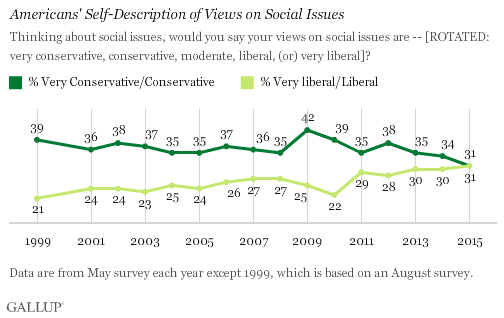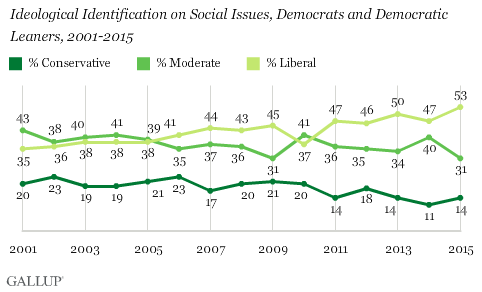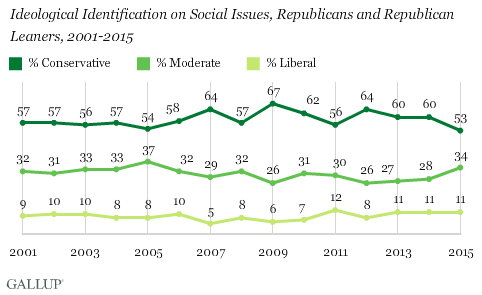Finally.
Starting with Rush Limbaugh in the 1980’s (and helped by Reagan), the word “liberal” was viewed as a dirty word, because being a liberal was viewed as being, well, a communist or something.
The damage to both the word and ideology was profound, and even liberals had a hard time self-identifying as “liberal” (hence, the word “progressive”). I knew it wouldn’t last forever, though. Eventually, the older generation would die out and a newer one – one not raise on Limbaugh and Beck – would come in.
We’re there. Gallup has new numbers today:
Thirty-one percent of Americans describe their views on social issues as generally liberal, matching the percentage who identify as social conservatives for the first time in Gallup records dating back to 1999.
And check out this chart…..
And notice the uptick in Democrats willing to admit being liberal. The chart below is just Democrats…
And Republicans are LESS willing to admit being conservative. The chart below is just Republicans…
Gallup concludes:
Americans’ growing social liberalism is evident not only in how they describe their views on social issues but also in changes in specific attitudes, such as increased support for same-sex marriage and legalizing marijuana. These longer-term trends may be attributable to changing attitudes among Americans of all ages, but they also may be a result of population changes, with younger, more liberal Americans entering adulthood while older, more conservative adults pass on. Gallup found evidence that population replacement is a factor in explaining changes in overall ideology using an analysis of birth cohorts over time.
The 2016 presidential election will thus be contested in a more socially liberal electorate — and a less economically conservative one — than was true of prior elections. Economically and socially conservative candidates may still appeal to the Republican Party base in the primaries, but it may be more important now than in the past for the GOP nominee to be a bit less conservative on social issues in order to appeal to the broader general electorate.
And while Americans are less economically conservative than in the past, economic conservatives still outnumber economic liberals by about 2-to-1. As a result, Democrats must be careful not to nominate a candidate who is viewed as too liberal on economic matters if their party hopes to hold the White House beyond 2016.



